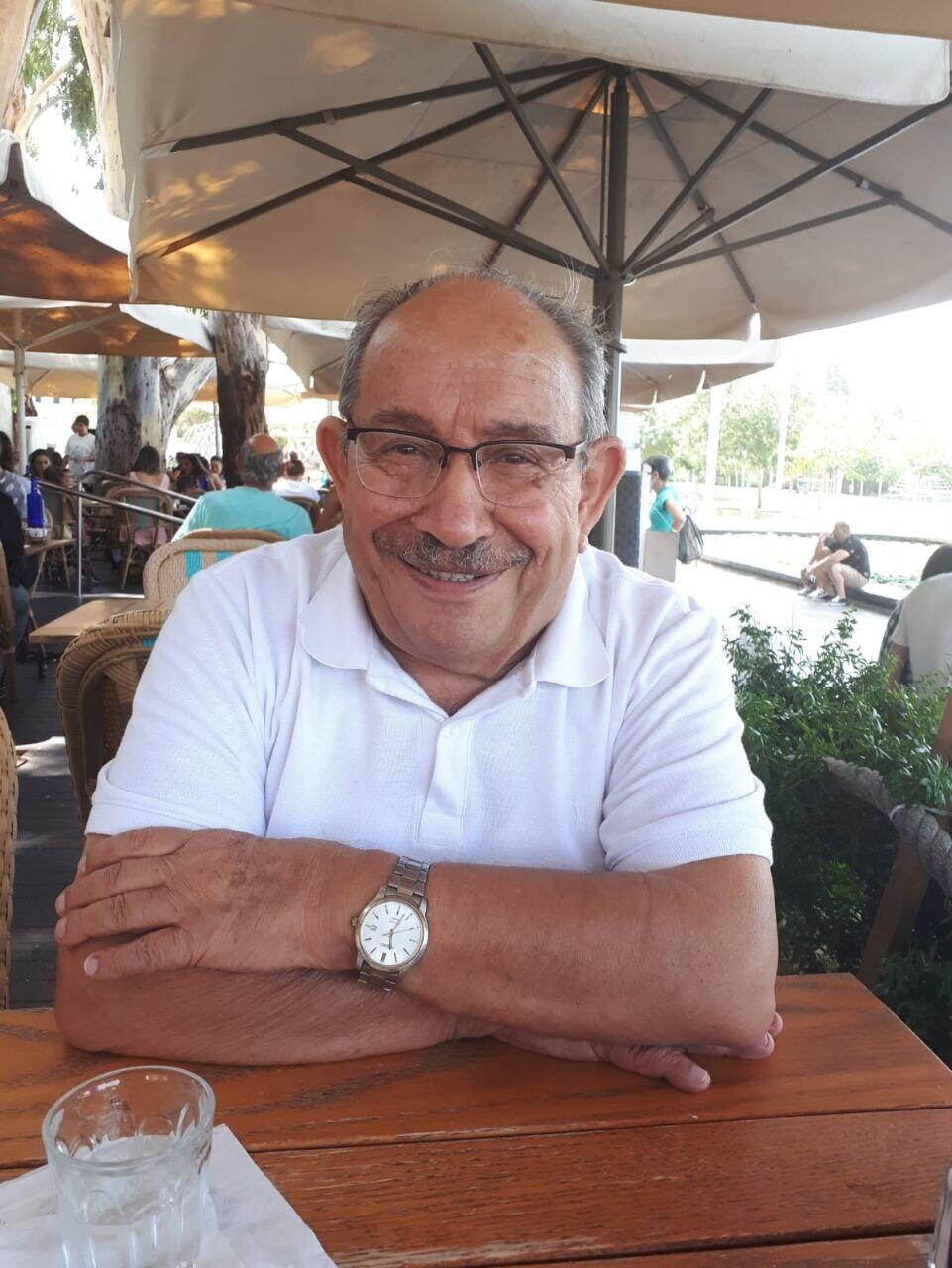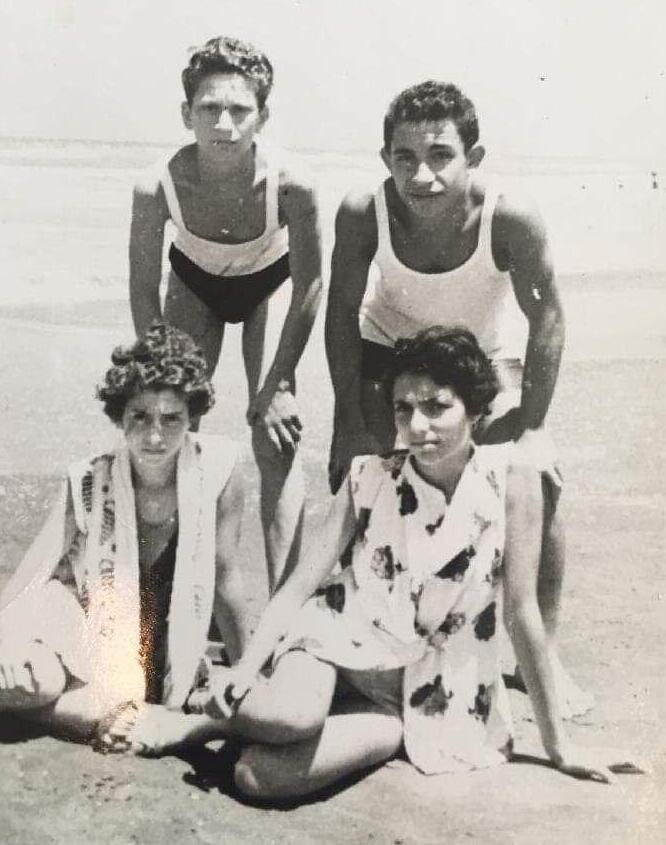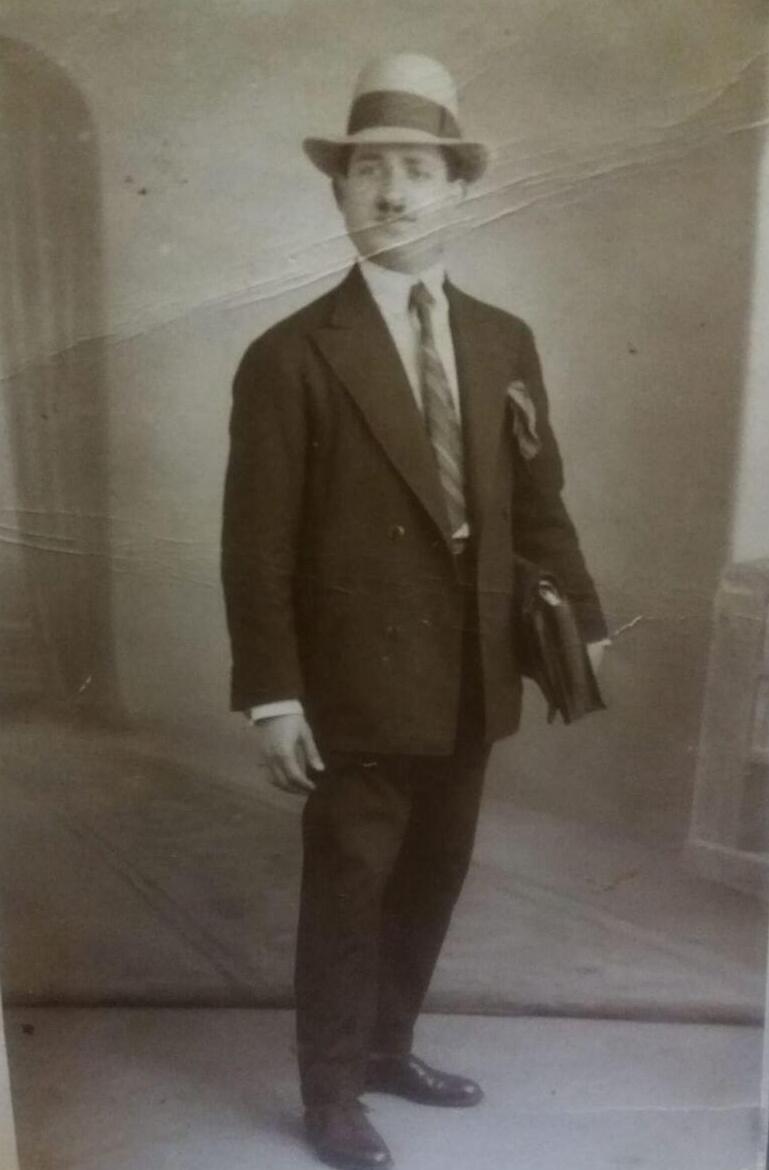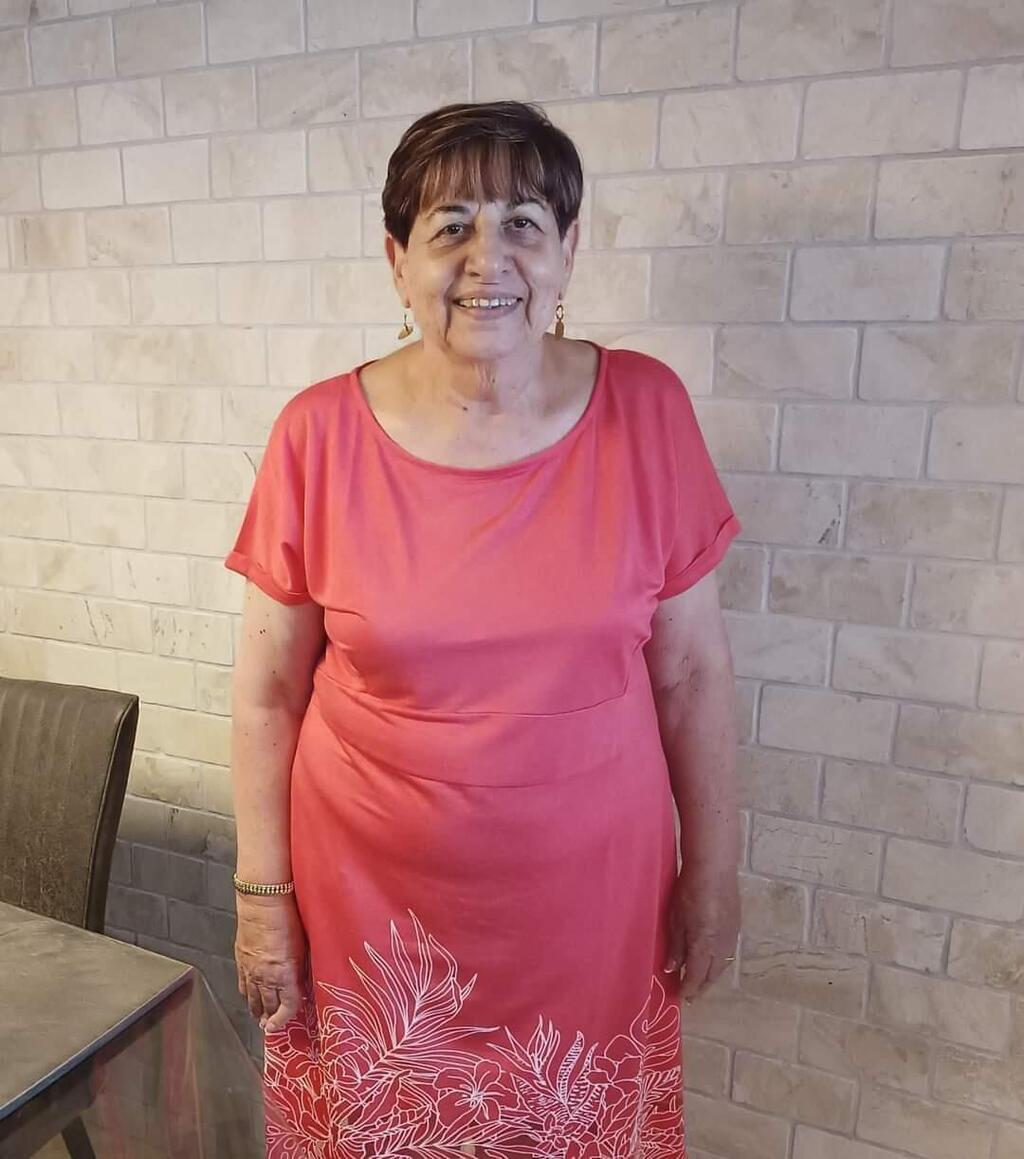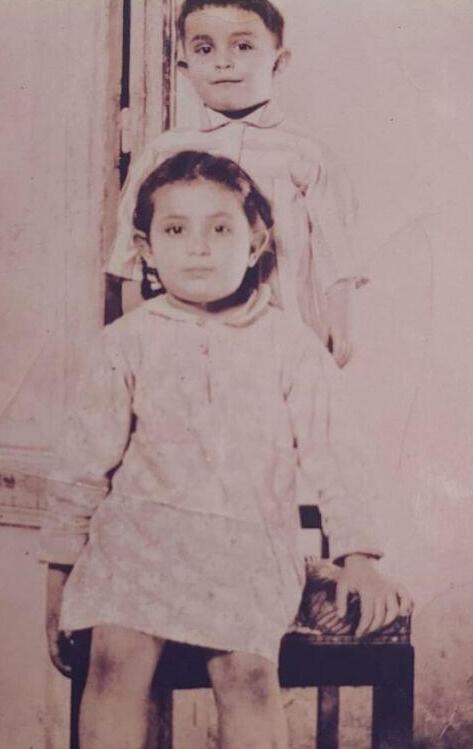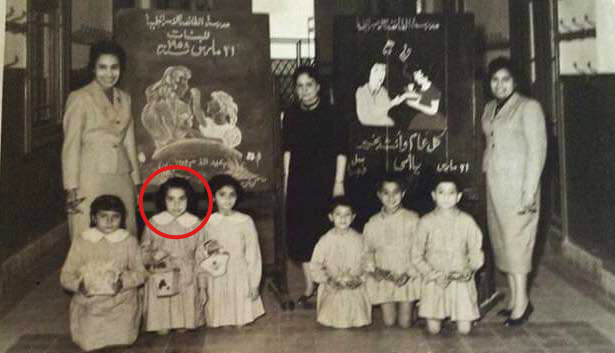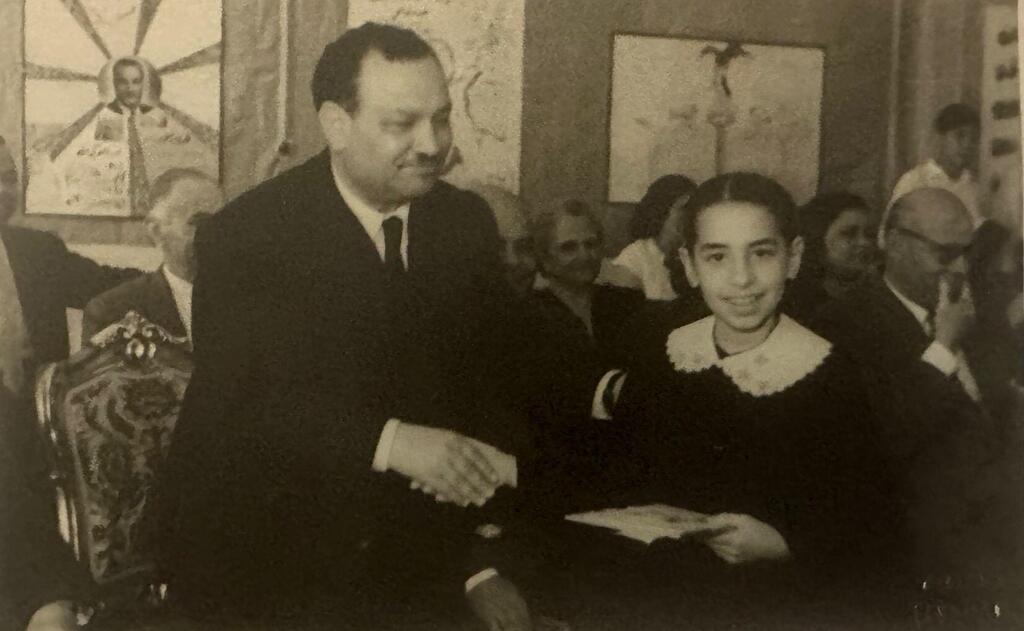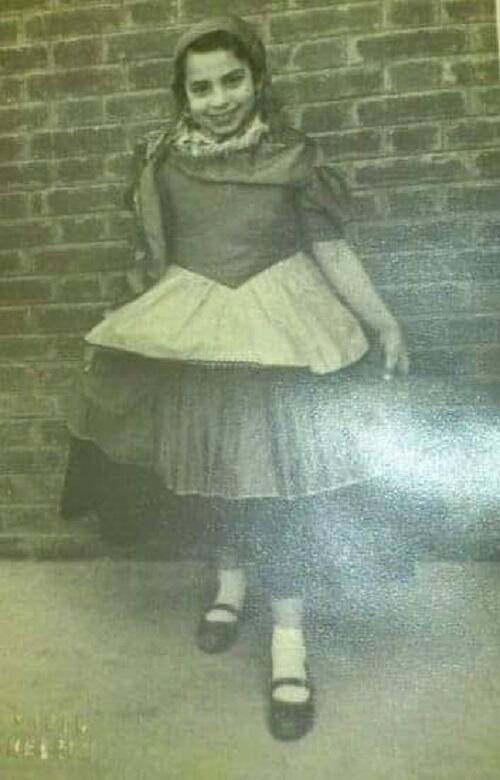Getting your Trinity Audio player ready...
"In every generation, a person must see themselves as if they came out of Egypt," the Passover Haggadah writes. This sentence is usually said on the eve of the Seder, as part of the Jewish tradition passed from generation to generation. Generally, it’s understood as a symbolic statement meant to connect the past and people’s traditions to the present – but among us are people who have experienced their own exodus from Egypt on their way to the Promised Land, taking their few belongings and making Aliyah to Israel.
Moshe Saban-Cohen, 87, was born in Cairo in a French hospital and held French citizenship. He was named after his father, Maurice, who passed away shortly after his birth. His family was financially sound but not very wealthy.
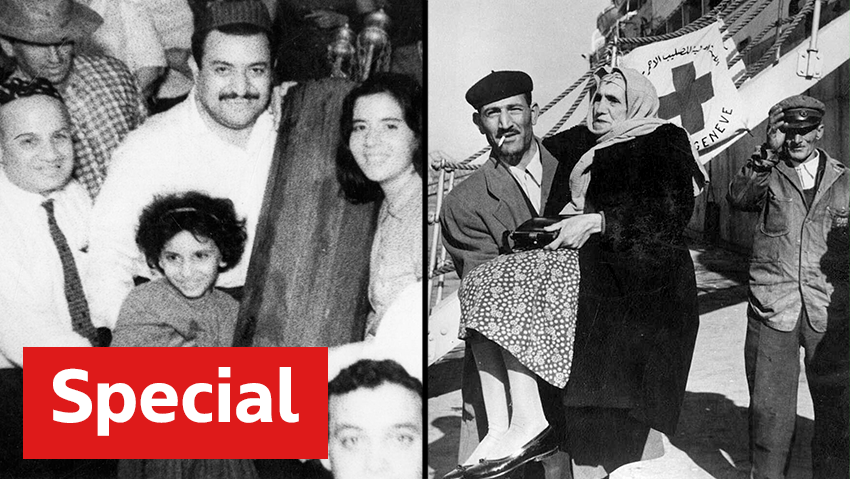
"There were good relations between us and the Egyptians until the years 1947-1946, and certainly in 1948. When the issue of partition (the proposal to partition Mandatory Palestine between Jews and Arabs) came up for discussion, there were incidents in which bombs were placed in Jewish neighborhoods, which prompted them to leave."
The stories of Jews who made Aliyah from Egypt a century ago include childhood memories, communal experiences, and significant milestones from their homes in the neighboring land, shedding light on the reasons that ultimately led them to arrive in Israel.
'Our neighbors were Muslim, we spent time together'
Moshe lived with his mother Clementine and sister Esther in Heliopolis (New Egypt), an upscale neighborhood in Cairo. He notes, "The Jewish community in Egypt numbered about 80,000 people, but it shrank to about 40,000 after 1948 (some made Aliyah and some scattered around the world). The community consisted of Karaite, Ashkenazi, and Sephardic Jews – to which we belonged."
The family lived near the palace of King Farouk I, who ruled Egypt after the death of his father, King Fuad I (1936), until the Free Officers' Movement that led to the end of the monarchy in 1952.
"Our neighbors were Muslims, but we spent time together back then, going to watch movies in the cinema or rowing in the Nile," he recalled. "After the relations cooled, we only greeted each other. From the moment Operation Kadesh began in 1956, a decree was issued saying every Jew and anyone holding foreign citizenship was required to register with the police and receive an alternative ID with their personal details and photo.
“Once we received the document, we had to register at the police station, or they would come to our house to check if we were there. Since I was already 19, they wanted to arrest me. A policeman and another person dressed as a civilian came to our house and demanded to arrest me."
(Video: The Zionist Archive, Levana Zamir, International Association of Jews from Egypt )
At that moment, when he was preparing to give in to his fate, his sister's husband, who lived with them in the same house, came to his aid and asked why they wanted to take Moshe. When he heard the reason, he offered both of them two gold bracelets he had made as part of his job as a jeweler.
"These bracelets prevented my arrest, but we were ordered to leave Egypt shortly thereafter," Saban-Cohen recounts. "We had to leave all our belongings and assets behind, including documents and photos. My mother prepared a bag for us in which we put some clothes, and we had to leave the place that was our warm home."
At that point, his family bought plane tickets to Paris due to their French citizenship and were transferred to a local hotel once they arrived in France. "My mother had relatives in Israel. On December 23, 1956, we boarded a ship and sailed to Israel," he recalls.
"Ultimately, we arrived in Kiryat Malachi, where we were settled in shacks. The conditions weren’t easy because there was no electricity, and we showered using a small tub. However, Egyptian Jews are tough and don’t give up easily, so we overcame the difficulties."
Moshe lived in Kiryat Malachi until 1992, and then he moved to Holon where he still lives to this day. He has four children, nine grandchildren, and 11 great-grandchildren. When asked about the comparison between the Biblical Exodus and the Passover Haggadah to his own experience with his family, Saban-Cohen explains the main difference was in the property they had and their preparation for the journey.
"In the time of Moses, it was written that the Israelites left with great wealth. In contrast, we left with almost nothing, leaving behind almost all our property and belongings," he explains, "but thank God, I lack for nothing today. I’ve told the story of my exodus from Egypt to my children and grandchildren, with the aim of also telling it to my great-grandchildren."
From Alexandria to Israel
Matild Cohen-Levi, 73, was born in 1949 on the eve of Rosh Hashanah in Alexandria to her parents the late Eli and Stella Cohen who were also born in Alexandria. She has a brother named Binyamin Cohen, who’s two and a half years older than her. Her childhood memories begin in October 1956, during the outbreak of the Sinai War. Similar to Saban-Cohen's story, she and part of her family were deported from the country due to their French citizenship.
"My father, brother, and I received a deportation order, but my mother and brother, who held Greek citizenship, weren’t deported from Egypt," she says. "Unfortunately, my mother suffered a very serious accident and was hospitalized at the Jewish Hospital in Alexandria at the time. The day before our planned departure, we arrived at the hospital to bid a sorrowful farewell to our dear mother and received a medical document about her condition from the hospital administrator as we cried.
“My father submitted the document to the authorities, and as a result, we were granted a three-month extension until my mother was discharged from the hospital. We were happy, but also sad about my father's family, who were deported and made Aliyah to Israel via France,” she says.
"My mother was hospitalized for 14 months and remained handicapped. When she was discharged from the hospital, she made sure to obtain Greek citizenship for my brother and me, so that God forbid, if war broke out again, we wouldn’t be deported (my father couldn’t obtain Greek citizenship)."
Meanwhile, the war ended, and no one searched for them, so they continued to live in Alexandria by their own decision until December 6, 1961, when her father decided they had no future in Egypt. His longing for his mother and brother grew until they decided to make Aliyah to Israel by ship. "We arrived in Lod on the night of December 12, 1961, and were settled in an absorption camp in Kiryat Hayim the next day," Cohen-Levi recalls.
In Alexandria, she lived with her family in high financial status and a seven-room apartment, but when they left for Israel, they did so with minimal belongings, suitcases with clothes, and very little money (20 Egyptian pounds per person). In Israel, they encountered challenging living conditions, to say the least.
"I’ve never felt any hostility from anyone in Egypt, neither did my family. I remember only beautiful, peaceful days filled with contentment that will never return," she nostalgically reflects. "A memory I enjoy dwelling on from my childhood in Egypt is the Jewish school 'Agion,' where I studied.
“My grandmother's sister worked there as a Hebrew teacher, as she was born in Jaffa, so I received special treatment in all aspects. I traveled to the hospital daily on the bus in order to stay by my mother's side, who was a wise woman and helped me with my homework until my father brought me back home after he was done working."
According to her, "The school was the center of our lives, both academically and socially. Jews, Muslims, and Coptic Christians studied there — a testament to the open-mindedness of Egyptian Jews and their ability to accept others. The school year began in October (after the Tishrei holidays) and lasted until the end of June, so summer vacation lasted three months."
She remembers the vacation primarily because of the "Enfance Heureuse" (French: Happy Childhood) camp, which took place in a boarding camp setting in a special building owned by the community, on Alexandria’s Sidy Bishr neighborhood’s coastline.
9 View gallery
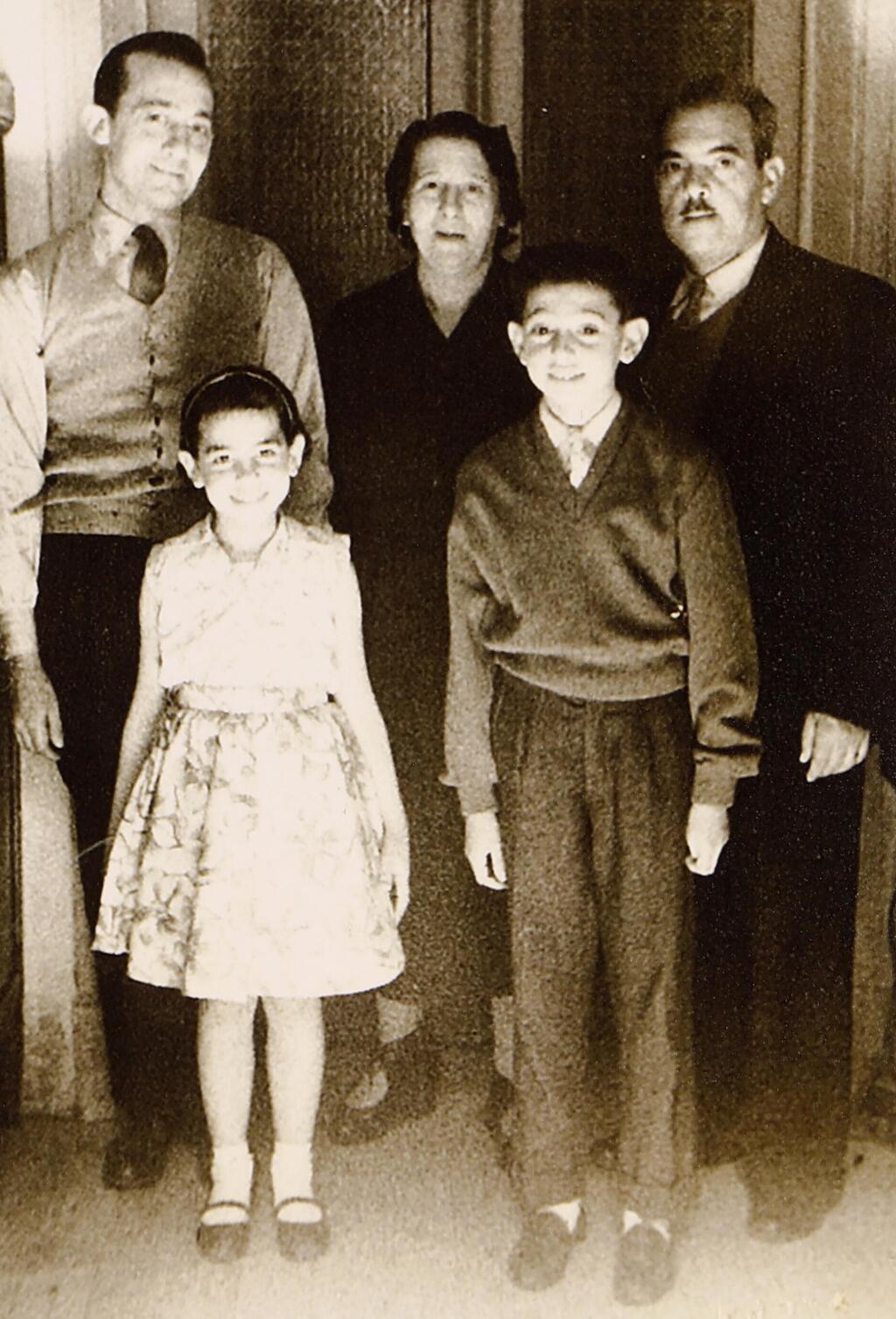

Eli and Stella Cohen, their children Benjamin and Matild and Stella's brother Marc Levi (left)
(Photo: Collection of Benjamin Cohen and Matilda Levi, the Digital Archive for the Preservation of the Heritage of Egyptian Jewry, Younes and Soraya Nazarian Library, University of Haifa, in collaboration with the Joseph and Racheline Barda Chair for the Study and Research of Jewish Heritage in Egypt)
"The camp included social activities, walks and swimming, communal games, and end-of-term parties with performances and shows prepared and presented by the students in front of their parents, students, the staff, and camp managers, as well as guests from the community."
She still longs for the shared outings with her brother and father every day, who gave them all they needed and wanted. Visits to cinemas, theaters, amusement parks, beautiful public gardens, restaurants, confectioneries, and cafes — they spent time together in all these places, perhaps as compensation for their mother's disability and bed confinement.
When asked to compare between the original Biblical Exodus and her own, she dislikes the idea. "In my opinion, there is no comparison. The Israelites in Egypt suffered slavery, oppression, and emerged from bondage to freedom, while my family and I lived in luxury in Egypt until the outbreak of Operation Kadesh," she explains.
"Fate smiled on us, and we weren’t ultimately deported, but we left after five years of our own free will. There’s no doubt that if we had continued to live in Egypt until 1967 when the Six-Day War broke out, our fate and lives would have changed for the worse, but it seems we were simply lucky."



